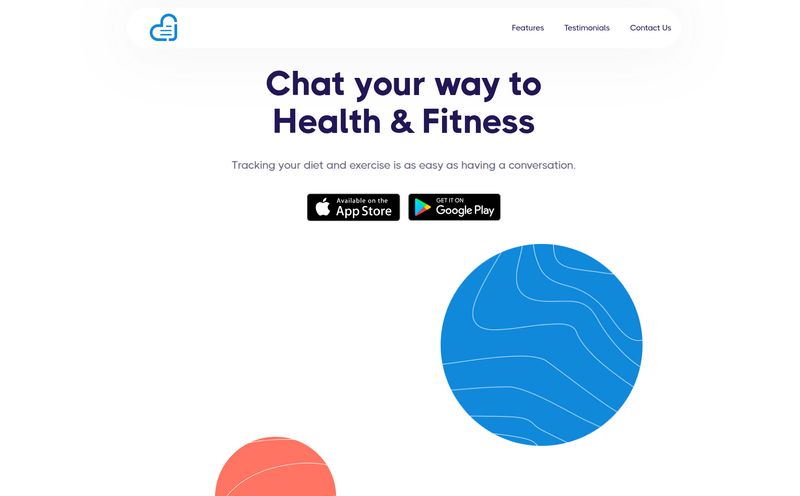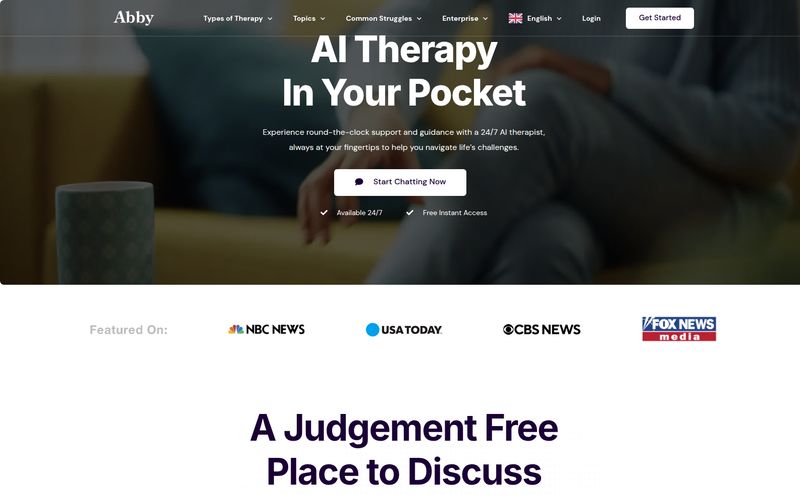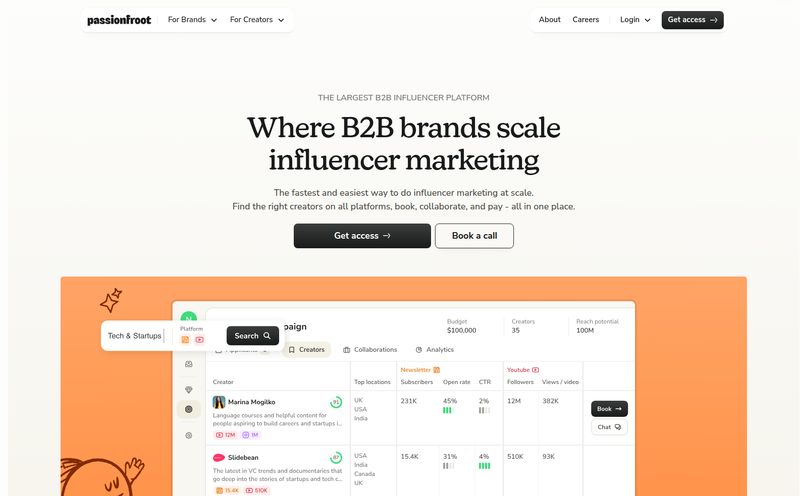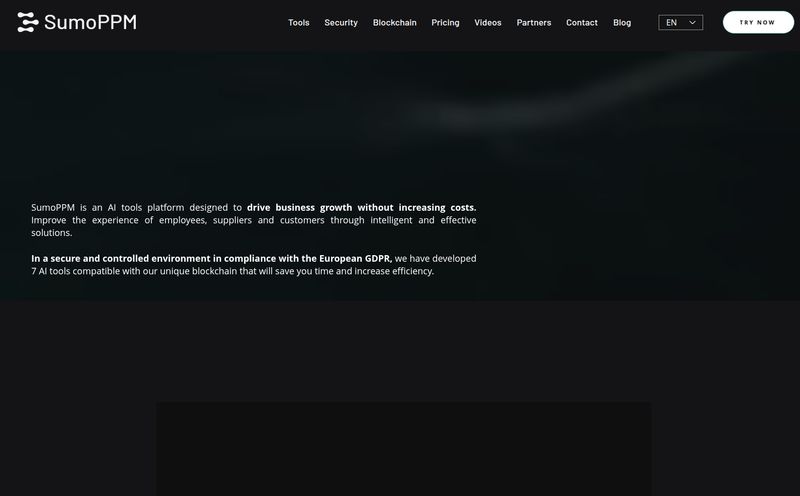If you’re a freelancer, a small business owner, or even just starting a new job, you’ve been there. Staring at a multi-page contract, your eyes glazing over as you try to decipher dense paragraphs of legalese. It’s a special kind of headache, isn't it? You’re trying to figure out what you’re actually signing, worried you might miss some sneaky clause that’ll come back to bite you. For years, the only real option was to shell out hundreds, if not thousands, for a lawyer to look it over.
But the tech world moves fast. AI is creeping into every corner of our professional lives, and honestly, I'm here for it. We've seen AI for writing, for coding, for design… so why not for legal documents? That’s the promise of tools like Clarifyr, a platform that claims to make contract analysis simple. But does it live up to the hype? I decided to take a look.
So, What's the Deal with Clarifyr?
At its heart, Clarifyr is an AI-powered contract analysis tool. Think of it as a super-smart assistant that reads your contracts for you. Instead of you spending hours with a highlighter and a growing sense of dread, you upload your document, and its AI gets to work. Its goal is to quickly pinpoint potential risks, highlight opportunities you might have missed, and just generally translate the gobbledygook into plain English. It’s designed for the rest of us—the non-lawyers who still have to navigate the often murky waters of legal agreements.
I’ve seen a lot of SaaS tools, and the landing page for Clarifyr is refreshingly clean. No over-the-top promises of changing the universe. Just a simple, clear value proposition: “AI-Powered Contract Analysis Made Simple.” I appreciate that.
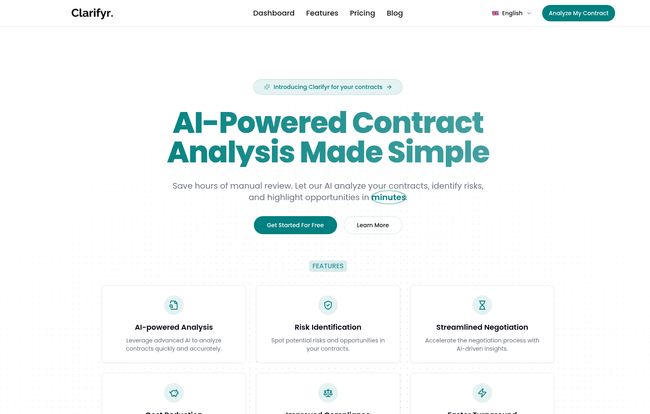
Visit Clarifyr
A Look Under the Hood: The Core Features
A tool is only as good as its features, right? Clarifyr isn't bloated with a million things you'll never use. It focuses on a few key areas, and from what I've seen, it does them pretty well.
Spotting Red Flags with AI Risk Identification
This is the big one for me. The primary reason I'd use a tool like this is to find the “gotchas.” Clarifyr’s dashboard gives you a clean breakdown of the risks it finds. In the example I saw, it flagged things like an “Indefinite Term,” which could leave an employee vulnerable, and “Limited Benefits.” What's really cool is that it doesn’t just list them; it assigns a severity level (like 'Medium'). This helps you immediately prioritize what to worry about. It’s like having a friend lean over your shoulder and say, “Hey, you might wanna look closer at this part.”
Uncovering Hidden Opportunities
It’s not all doom and gloom. This is a feature I didn’t expect but absolutely love. The AI also scans for opportunities—things you could potentially negotiate for a better deal. Maybe the termination clause is a bit vague, giving you room to ask for more clarity, or the scope of work could be defined better to protect you from scope creep. This shifts the tool from a purely defensive gadget to a proactive negotiation partner. The testimonial from Greg S. on their site mentioned how helpful it was for his negotiation, and I can totally see why.
The 'Chat with Your Contract' Premium Feature
Okay, this is where things get a bit sci-fi, and it’s a major selling point for their Premium plan. You can literally ask your contract questions. Stuff like, “What does it say about intellectual property?” or “Summarize the termination conditions.” For anyone who has tried to use CTRL+F to find specific terms in a 50-page document, this is a game-changer. It turns a static, intimidating document into an interactive database. This alone could be worth the price of admission for people who deal with complex contracts regularly.
Breaking Down the Cost: Clarifyr Pricing
So, what's this going to set you back? The pricing structure is pretty straightforward, which is another point in its favor. They have a free tier and a premium one.
| Plan | Price | Best For | Key Features |
|---|---|---|---|
| Basic | $0 / Free | Quick checks or trying the tool. | Basic analysis, 1 project, 3 risks & 3 opportunities identified, brief summary. |
| Premium | $35 / month | Freelancers, consultants, and SMBs. | Unlimited projects, Chat with your contract, 10+ detailed risks/opportunities, negotiation points, compliance assessment, and much more. |
The free plan is genuinely useful for a one-off contract review. If a potential client sends you a simple SOW, you can run it through and get a basic safety check. No brainer. But the $35/month Premium plan is where the real power is. When you consider that a single hour of a lawyer's time can run you $300 or more, that price looks very, very reasonable.
The Elephant in the Room: Can Clarifyr Replace a Lawyer?
Let’s get this out of the way. No. And I don’t think it’s trying to.
Thinking Clarifyr can completely replace a seasoned legal professional is like thinking WebMD can replace your doctor. It’s an incredibly powerful diagnostic tool. It can tell you what’s likely going on, what the common issues are, and what questions you need to ask. But for a complex, high-stakes diagnosis (or a multi-million dollar corporate merger), you still need to see the specialist.
Where this tool wins is in the 80% of cases that might not warrant a huge legal bill. That freelance agreement, the marketing services contract, the NDA you were just sent. It’s a first line of defense. It empowers you to either sign with confidence or go to your lawyer with specific, intelligent questions, which saves them time and you money. The reliance on AI accuracy is something to be aware of—I'd always do a final human read-through of critical sections—but as a tool to handle the initial heavy lifting, its fantastic.
My Final Verdict
I'm genuinely impressed with Clarifyr. It's not trying to be a magic wand that solves every legal problem. Instead, it’s a practical, well-designed tool that addresses a very real pain point for a huge number of people. It democratizes the first pass of contract review, taking it out of the exclusive hands of expensive law firms and putting it into the hands of the people actually signing on the dotted line.
For freelancers, small business owners and consultants, the premium plan seems like an absolute steal. It’s a small monthly investment for a whole lot of peace of mind. In a business world that runs on contracts, having a tool that provides this much clarity isn't just a nice-to-have; it's a powerful advantage.
Frequently Asked Questions about Clarifyr
- Is it safe to upload sensitive contracts to Clarifyr?
- While I haven't audited their security myself, platforms like this live and die by their reputation for security and confidentiality. They typically use robust encryption and data protection protocols, similar to other professional cloud-based services. It's always good practice to review their privacy policy, but for standard business contracts, it's generally considered safe.
- What file types can I upload for analysis?
- Most contract review tools are built to handle common document formats. You can likely expect it to work seamlessly with PDFs, Word documents (.doc, .docx), and possibly other text-based files. The goal is to make it as easy as possible, so they usually support whatever format your contract comes in.
- Is the free version of Clarifyr actually useful?
- Yes, absolutely. It's limited, of course, but for getting a quick snapshot of a simple contract, it's perfect. It will give you a general feel for the document and point out a few major items. It’s an excellent way to test the platform's capabilities before committing to the paid plan.
- How does the “Chat with your contract” feature really work?
- Think of it like a specialized version of ChatGPT that has only read one thing: your contract. The AI processes and 'understands' the document's structure and content, allowing you to ask natural language questions. For example, you can ask “What is the payment schedule?” and it will find and present the relevant clause to you, saving you from manually searching for it.
- What if I only need the Premium plan for one month?
- Most modern SaaS platforms like this operate on a month-to-month subscription basis. You should be able to sign up for the Premium plan, analyze all the contracts you need, and then cancel before the next billing cycle. It’s a great way to get a ton of value for just one month's fee.
